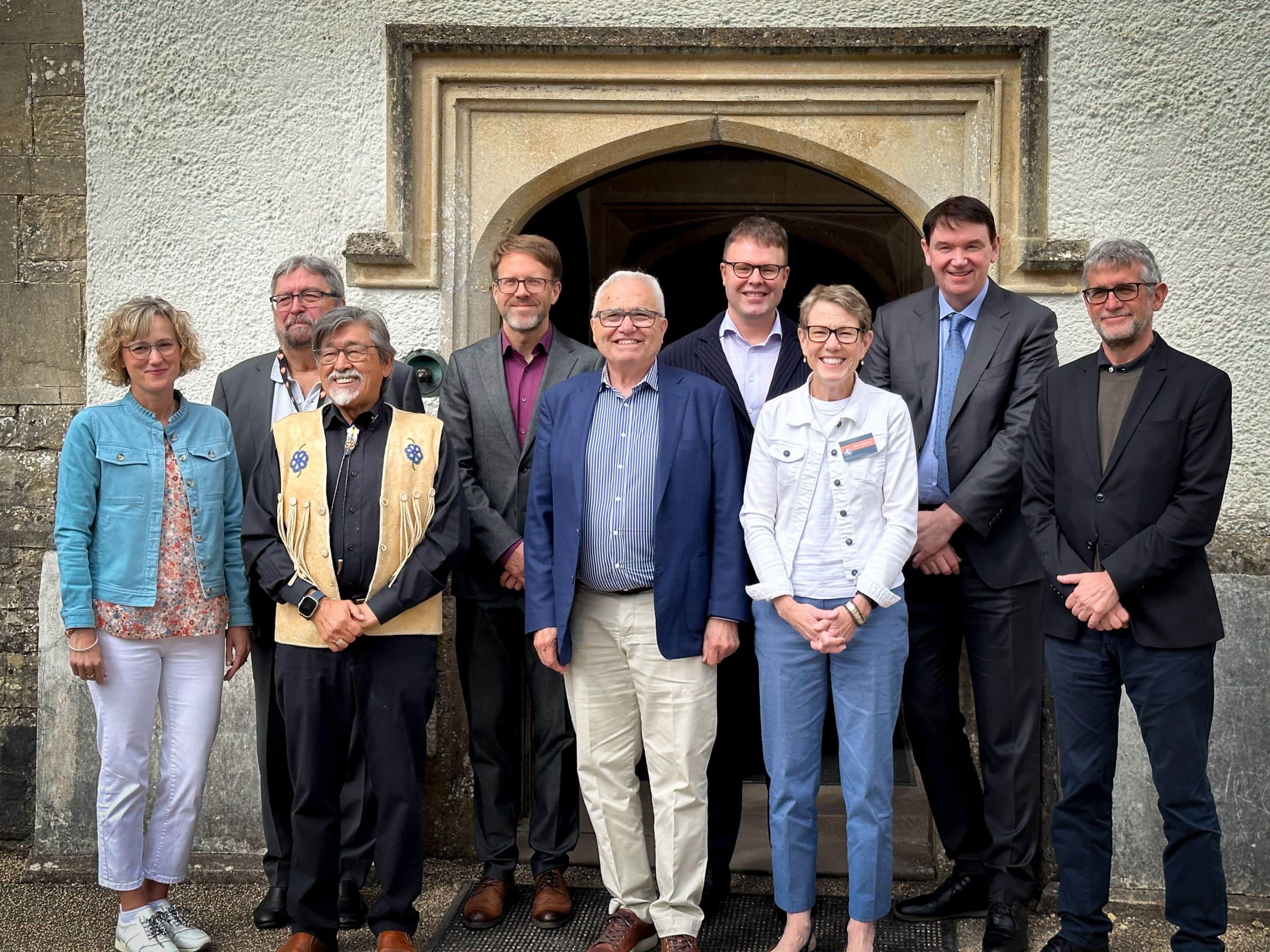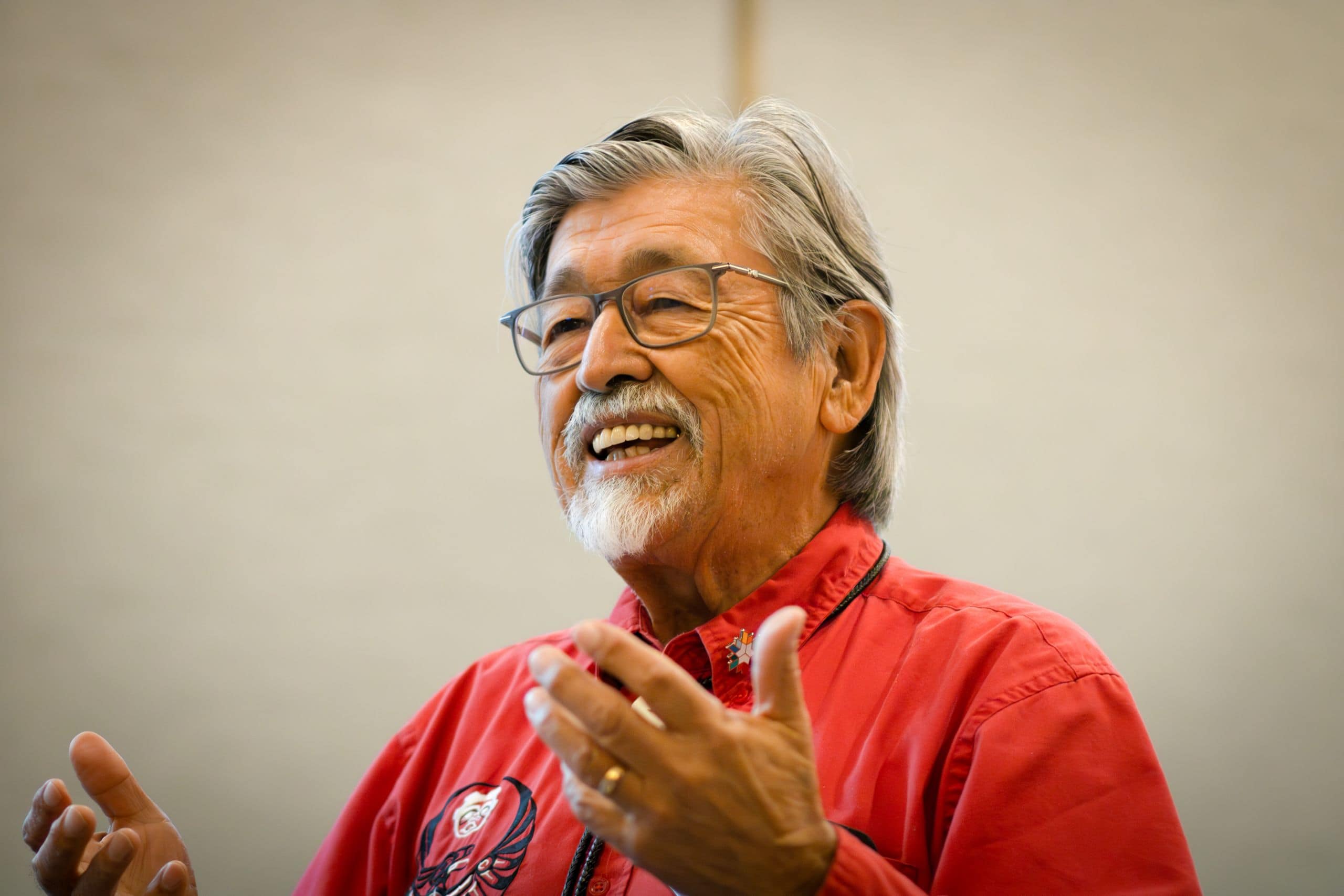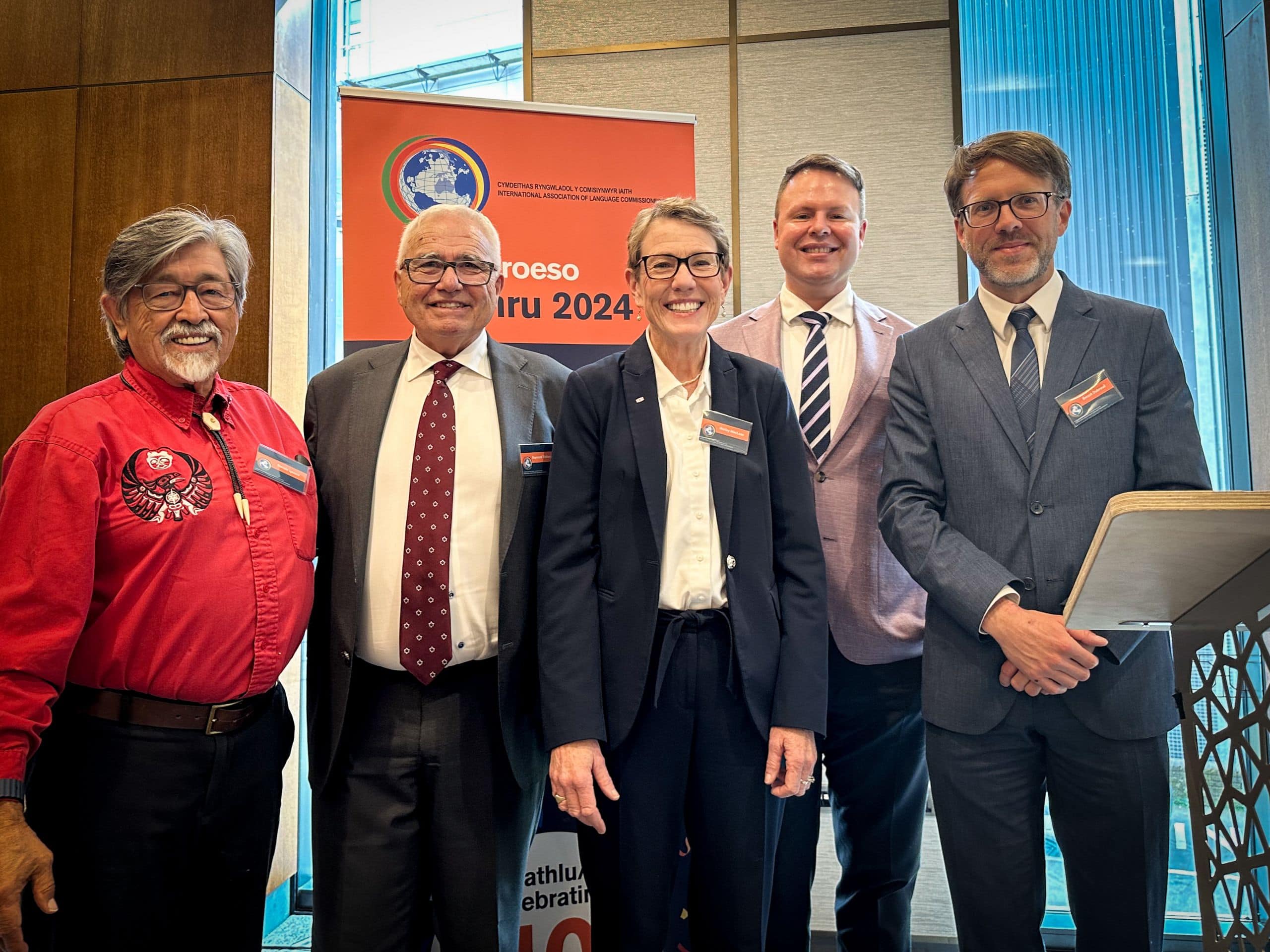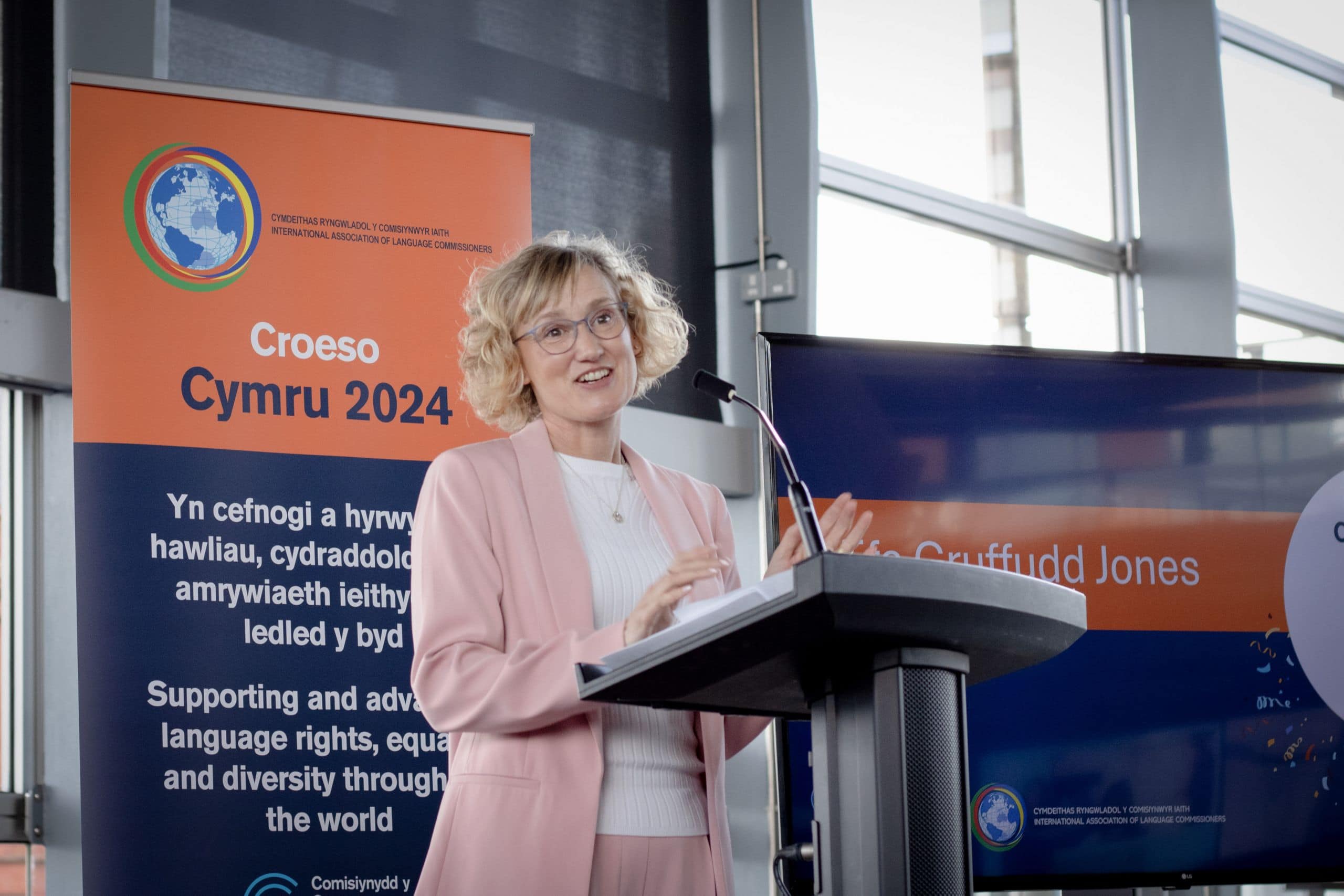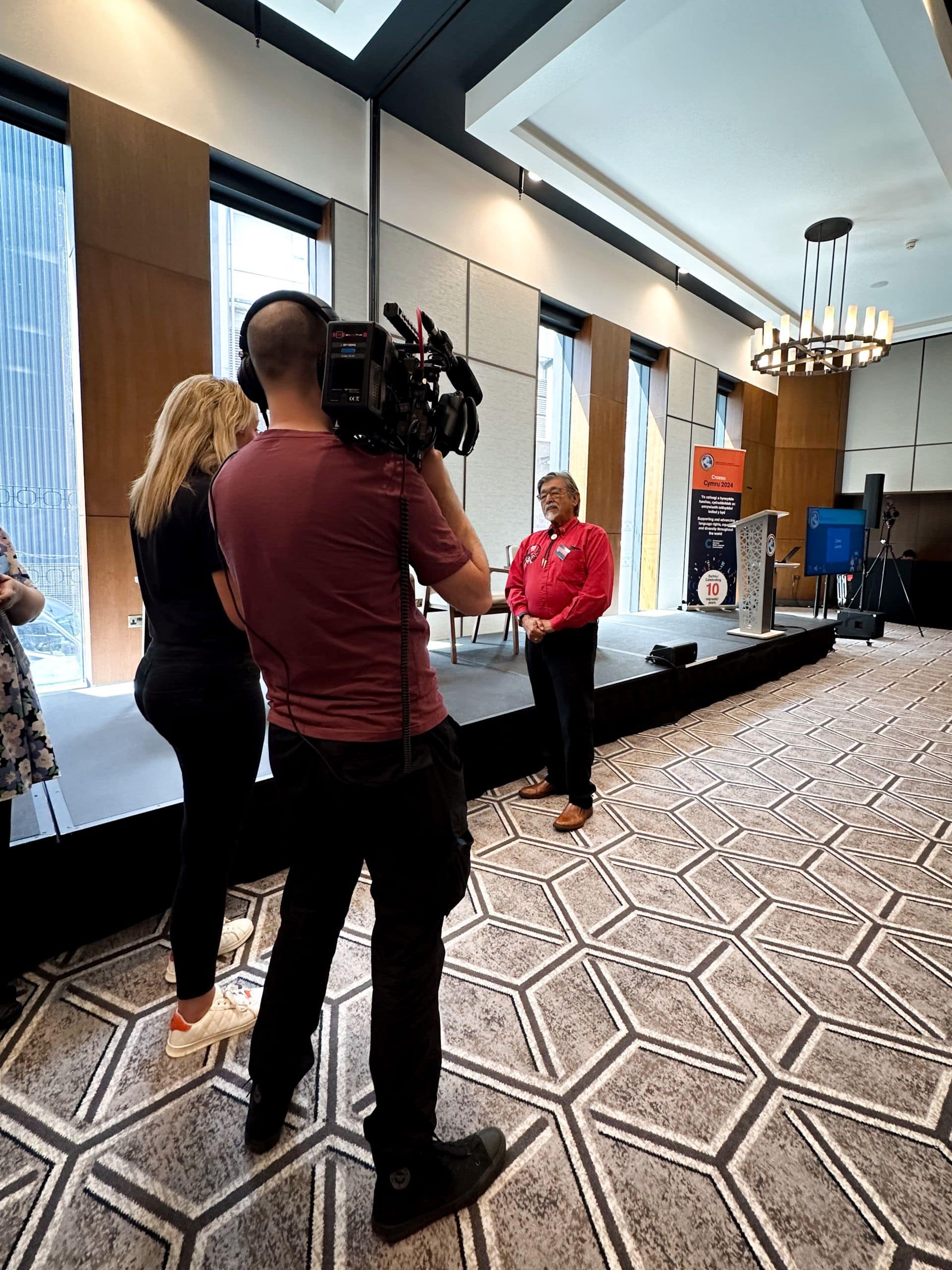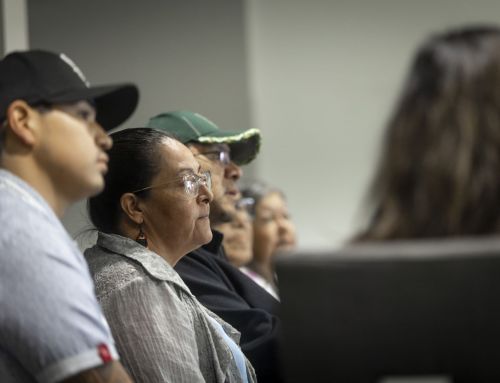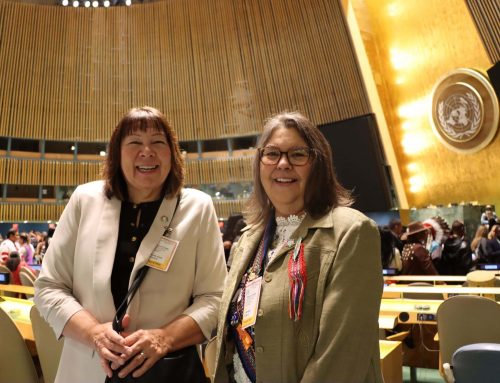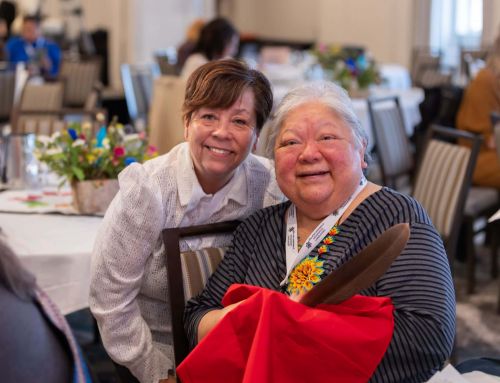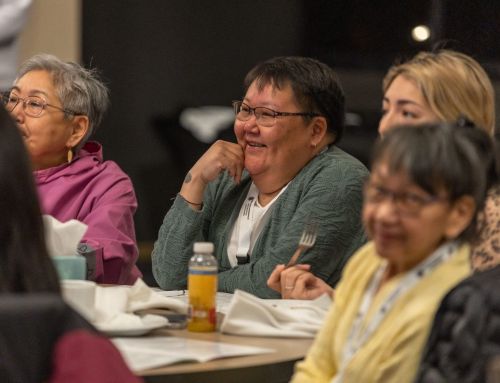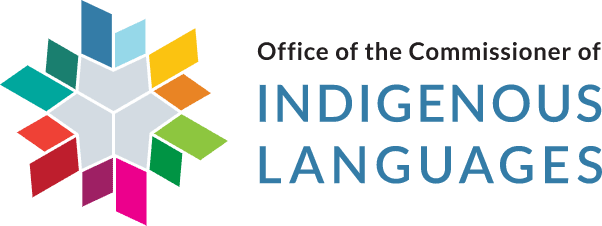In June, the International Association of Language Commissioners (IALC) held its 10th anniversary conference in Cardiff, Wales, shining a spotlight on the efforts to protect and promote minority languages worldwide. As a new member, the Office of the Commissioner of Indigenous Languages attended this international event, which brought together language commissioners, experts, and policymakers from around the world to share insights and best practices.
Wales is making strides to revive the Welsh language through its pioneering “Cymraeg 2050” strategy, which aims for 1 million Welsh speakers by 2050. Osian Llywelyn, Deputy Welsh Language Commissioner says, their vision is “a Wales where people can use the Welsh language in their everyday lives.” The Welsh Language Standards set minimum requirements for public bodies to treat Welsh and English equally. However, organizations are encouraged to go beyond compliance.
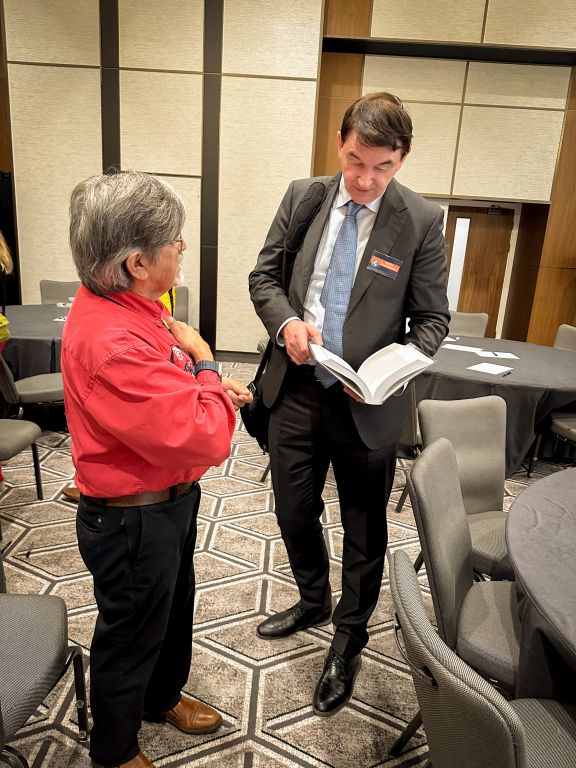
Dona Lewis, Chief Executive Officer of the National Centre for Learning Welsh, highlighted their multi-layered approach with various learning models like virtual classes, self-study resources, and the innovative Siard scheme pairing learners with fluent speakers. Engaging employers has been crucial, with over 30 organizations partnering to support workplace language initiatives.
Local communities are also involved, with Cardiff adopting a bilingual street names policy after public consultation. The 10-year Local Development Plans prioritize increasing Welsh speakers, making the language a norm, and building prosperous communities.
In healthcare, providing Welsh language services is vital for patient-centered care. However, an assurance report found more work is needed in this sector.
The Commissioner of Ireland, Séamas Ó Concheanainn, shared examples where the Irish language is showing some positive signs, with 38,000 pupils currently enrolled in immersion schools and expanded radio and television services. Aiming to boost the use of the Irish language, they mandated that 20% of yearly advertising must be Irish and 5% of advertising spending must go to Irish-language media. The Irish Language Commissioner says that regaining public trust is key to strengthening language rights amid an evolving landscape with persistent challenges.
The growing recognition of the link between language and human rights was poignantly highlighted by Dr. Fernand de Varennes, former UN Special Rapporteur on minority issues. He emphasized the need for enforceable laws and mechanisms to safeguard minority language rights and stressed that while legislation is necessary, it is often insufficient to truly protect and maintain minority languages in the long term.
Panelists from various organizations, including the Isle of Anglesey City Council and Natural Resources Wales, shared their experiences in implementing Welsh language standards and promoting bilingualism within their workplaces. Strategies included developing internal language policies, providing language training opportunities, and leveraging technology to facilitate language use.
Later in the week during the IALC Annual General Meeting, the Commissioner of Indigenous Languages, Dr. Ronald Ignace, addressed the International Association of Language Commissioners. The Commissioner shared his personal story and passion for his language, Secwepemctsin, instilled by his great-grandmother, Sulyen. He emphasized the devastating impact of Canada’s historical and ongoing cultural genocide on Indigenous languages and identity.
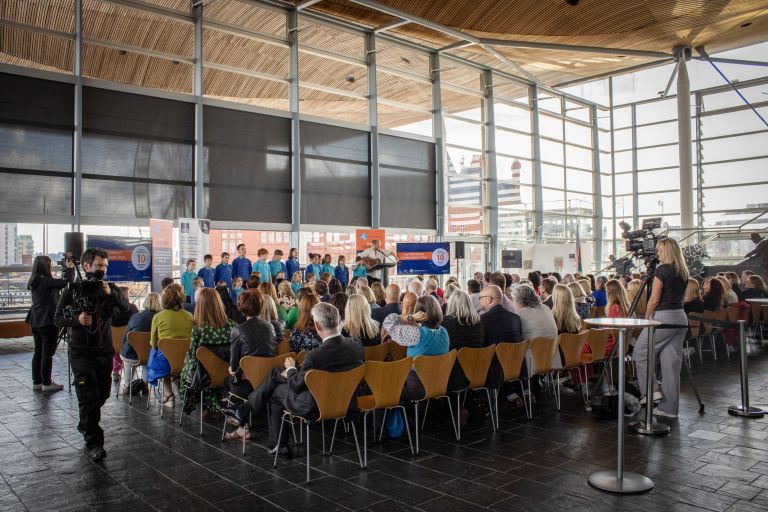
He highlighted the significance of the Indigenous Languages Act (the Act), which became law in 2019 after extensive collaboration and co-development with Indigenous peoples. The Act recognizes that rights related to Indigenous languages are Constitutionally protected rights. The Commissioner stressed that the Act alone will not revitalize languages; transformative change requires concerted efforts from Indigenous leaders, communities, and all of Canada.
The Commissioner shared about the mandate and mission of the Commission to help promote and support the revitalization of all Indigenous languages in Canada, to help ensure no language is left behind. He conveyed insights from recent national and regional gatherings, where inspiring stories of language reclamation and revitalization efforts were shared. The Commissioner invited attendees to the 2025 Global Indigenous Languages Conference in Ottawa, where innovative practices, grassroots efforts, and research will be highlighted. He also spoke about the launch of key advocacy initiatives, such as the transformation the education system to better support fluency and proficiency programs together with language immersion teacher education – a pathway that currently does not exist meaningfully. With the right resources, institutional support, and hard work, the Commissioner expressed hope for a future where all Indigenous languages are safe, vibrant, and thriving, no longer standing in the shadow of others.
As the world becomes increasingly interconnected, the IALC conference demonstrates the importance of preserving linguistic diversity and upholding language rights as a fundamental aspect of human rights. The shared experiences and best practices showcased at the event serve as inspiration for governments, organizations, and language commissions worldwide to foster inclusive societies where all languages are valued and protected.
